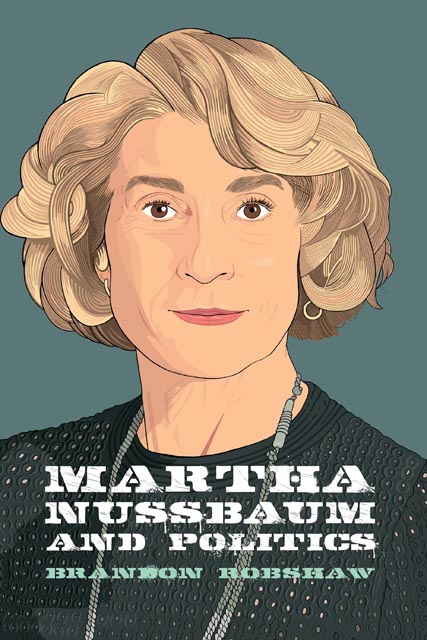Book contents
- Frontmatter
- Contents
- Introduction: A Public Intellectual
- Chapter 1 Nussbaum and the Ancient Greeks: Tragedy, the Luck-Proofing of Life, and Practical Rationality
- Chapter 2 Nussbaum and Education: Socratic Scrutiny, World Citizenship and the Narrative Imagination
- Chapter 3 Nussbaum and Feminism: Liberal Feminism, Adaptive Preferences and FGM
- Chapter 4 Nussbaum and Capabilities: Human Nature, Human Flourishing and the Ten Capabilities
- Chapter 5 Nussbaum and Animal Rights: Capabilities for Animals
- Chapter 6 Nussbaum and Religion: Liberty of Conscience, Accommodation and Burqa Bans
- Chapter 7 Nussbaum and the Emotions: Emotions as Cognitive Judgements – and a Normative Critique of Anger
- Chapter 8 Nussbaum and Global Justice: Cosmopolitanism, Material Aid and Immigration
- Conclusion: An Organic Whole
- Bibliography
- Index
Chapter 2 - Nussbaum and Education: Socratic Scrutiny, World Citizenship and the Narrative Imagination
Published online by Cambridge University Press: 18 October 2023
- Frontmatter
- Contents
- Introduction: A Public Intellectual
- Chapter 1 Nussbaum and the Ancient Greeks: Tragedy, the Luck-Proofing of Life, and Practical Rationality
- Chapter 2 Nussbaum and Education: Socratic Scrutiny, World Citizenship and the Narrative Imagination
- Chapter 3 Nussbaum and Feminism: Liberal Feminism, Adaptive Preferences and FGM
- Chapter 4 Nussbaum and Capabilities: Human Nature, Human Flourishing and the Ten Capabilities
- Chapter 5 Nussbaum and Animal Rights: Capabilities for Animals
- Chapter 6 Nussbaum and Religion: Liberty of Conscience, Accommodation and Burqa Bans
- Chapter 7 Nussbaum and the Emotions: Emotions as Cognitive Judgements – and a Normative Critique of Anger
- Chapter 8 Nussbaum and Global Justice: Cosmopolitanism, Material Aid and Immigration
- Conclusion: An Organic Whole
- Bibliography
- Index
Summary
Cultivating Humanity (1997) marks a distinct turn from the question of what makes for a good human life to the question of how to get it; or, one might say, from moral to political philosophy. The book continues Nussbaum's practice of drawing on other disciplines. Like the Greeks whose ideas have inspired her, she makes no sharp distinction between philosophy and other arts, and Cultivating Humanity is an interesting hybrid of philosophy, literary criticism, history, case studies and autobiography. Cultivating Humanity also features another hallmark of Nussbaum's work: its engagement with the real world. She is no ivory tower philosopher, noting in her preface that ‘philosophy should not be written in detachment from real life’ (1997: ix). The book grew from her two decades of experience teaching at Harvard, Brown, the University of Chicago and dozens of other campuses where she was a Visiting Professor, and she first began to outline the ideas of the book in articles for the New York Review of Books and the New Republic , rather than in scholarly journals which would have reached only a small, specialist readership. One of those articles was a lengthy (nearly 8,000 words) response to Allan Bloom's The Closing of the American Mind (1987). Bloom's book, subtitled How Higher Education Has Failed Democracy and Impoverished the Souls of Today's Students , is an attack on the values of American students, castigating them for, among other things, their ignorance of books and their love of rock music, but most importantly of all, their relativism. Bloom begins the book with the claim that ‘almost every student entering the university believes, or says he believes, that truth is relative’ (1987: 25). This relativism results in an unlimited open-mindedness which, Bloom argues, is paradoxically a closing of the mind, since it requires a total suspension of the critical faculty. Praised by conservatives, damned by progressives, the book became an unexpected best-seller and is often credited with having kick-started the so-called ‘culture wars’. Nussbaum's article, which appeared in the New York Review of Books and was later included as a chapter in her collection of reviews, Philosophical Interventions (2012a), is not only a trenchant critique of Bloom's position (as well as his scholarship and the vagueness of his arguments), but also an early manifesto for her own philosophy of education.
- Type
- Chapter
- Information
- Martha Nussbaum and Politics , pp. 30 - 50Publisher: Edinburgh University PressPrint publication year: 2023



